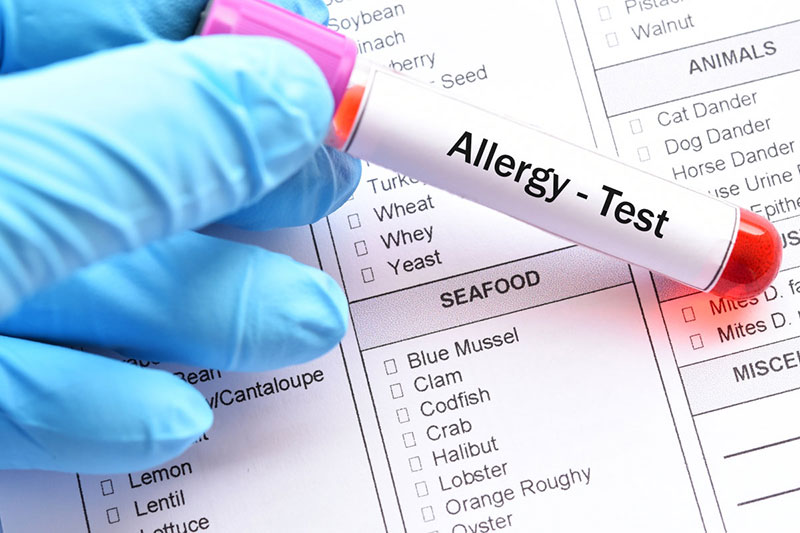Food allergies occur when the immune system responds to one or more allergens (components that are usually harmless) in food. Food allergies have increased at an unprecedented rate during recent years (increased by 6-8% for children and 2-4% for adults). The frequency of food intolerances such as lactose intolerance, gluten intolerance, and celiac disease are also on the rise. Both food allergies and intolerances have significant impacts on the health of human beings, and they can be life-threatening under certain situations. Therefore, food manufacturers must provide detailed information about the ingredients, additives, and cross-contamination risks to ensure the safety and quality of their food products.

Lifeasible, as a leader in food allergen testing, provides reliable tests for a wide range of allergens, including:
- Plant allergens.
- Cereals containing gluten (e.g., wheat, rye, barley, oat, spelt or their hybridized strains) and related products.
- Peanuts and related products.
- Tree nuts (e.g. almonds, hazelnut, walnut, cashews, pecan nut, Brazil nut, pistachio nuts, coconut, macadamia, and Queensland nut).
- Lupin and related products.
- Mustard and related products.
- Celery and related products.
- Sesame seeds and related products.
- Soybeans and related products.
- Fruits.
- Other vegetables.
- Animal allergens.
- Milk and related products (lactose, β-Lactoglobulin, and casein).
- Fish and related products.
- Eggs and related products.
- Molluscs (such as clams, oysters, and mussels) and related products.
- Crustaceans (e.g., prawns, crabs, and lobster) and related products.
- Pseudo allergens.
- Sulphur dioxide and sulphites.
We have a state-of-the-art allergens testing laboratory certificated by both ISO/ICE 17025 and ISO 9001. Using a wide scope of detection methods, our teams of highly experienced experts can help you detect a variety of food allergens with high reliability and accuracy.
- Enzyme-linked immunosorbent assay (ELISA). The principle of the ELISA technique is based on reactions of antibodies with the target allergenic proteins. Although the ELISA test is designed to detect one allergen at a time, this technique is used with a wide variety of food products; because it is quick and easy to use, and cost-effective.
- Polymerase chain reaction (PCR). This method relies on the recognition of specific nucleotide sequences of related allergens.
- The lateral flow test. This test uses lateral flow strips to evaluate the presence of food allergens semi-quantitatively or quantitatively by means of an LFD reader.
- Liquid chromatography with tandem mass spectrometry (LC-MS/MS). LC-MS/MS uses high-resolution accurate mass (HRAM) instrumentation and allows the identification of multiple allergenic peptides in a food. LC-MS/MS technique is featured by fewer false negatives and higher sensitivity, specificity, accuracy, and reliability.
With years of experience in allergens testing, as well as cutting-edge facilities, we can provide you with precise and accurate analytical data at high quality. We are devoted to protecting your customers’ safety, and avoid your product recalls. Welcome to contact us for inquiries or further information.
For research or industrial raw materials, not for personal medical use!
